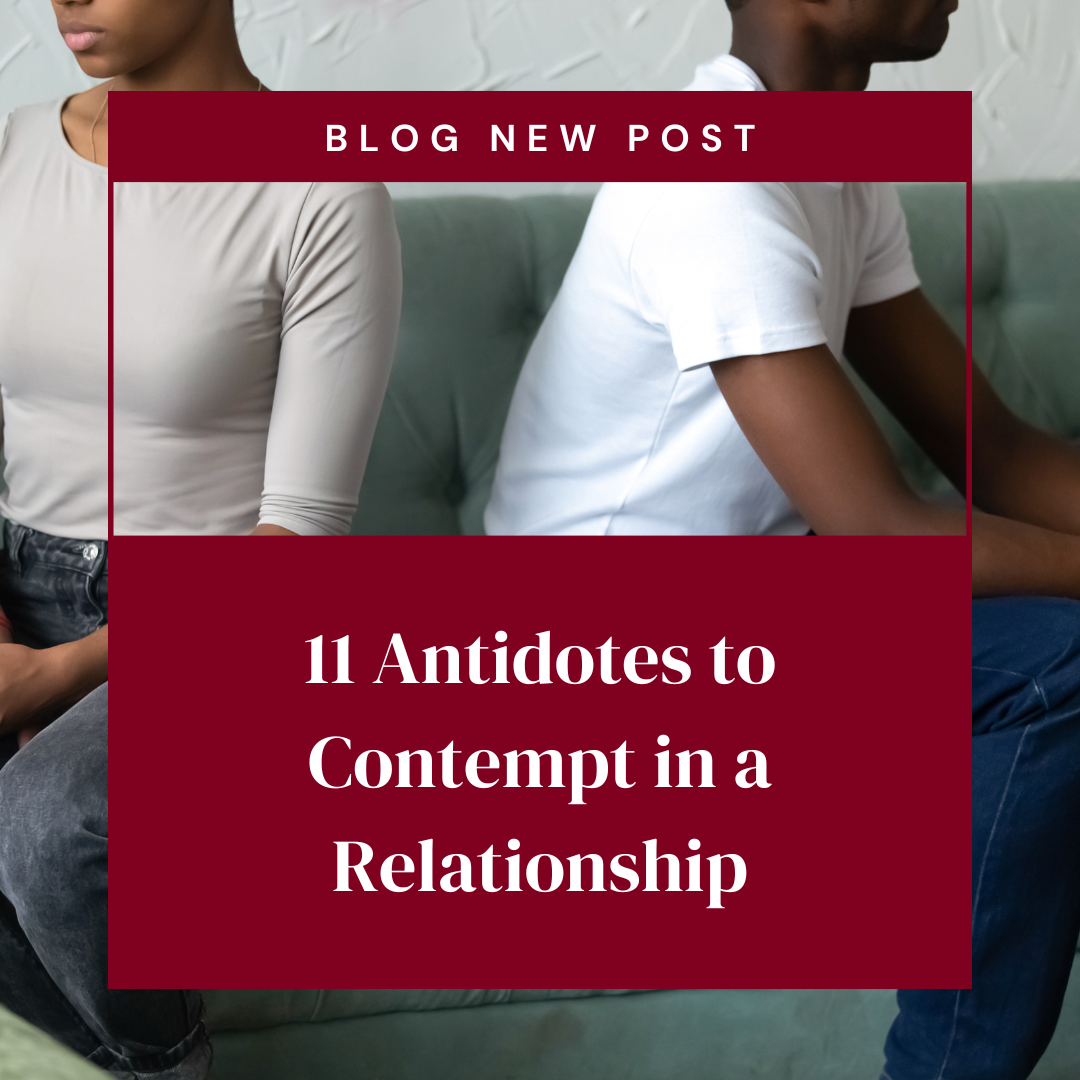11 Antidotes to Contempt in a Relationship
Dr. John Gottman and Dr. Julie Gottman are prominent relationship researchers. They identified contempt as one of the "Four Horsemen of the Apocalypse" in relationships—a set of toxic communication patterns that predict relationship dissatisfaction and potential breakup. Contempt involves feeling superior to your partner, manifesting as sarcasm, belittling, or disrespect. Here's how you can counteract contempt in your relationship:
Practice Empathy and Understanding: Cultivate empathy for your partner's feelings, thoughts, and experiences. Try to understand their perspective, even if you disagree. Empathy helps reduce contempt by fostering a sense of connection and mutual respect.
Communicate Respectfully: Speak to your partner in a respectful and considerate manner. Avoid derogatory language, insults, or belittling comments. Treat your partner as you would like to be treated.
Express Appreciation and Gratitude: Make an effort to express appreciation and gratitude for your partner regularly. Acknowledge their efforts, kindness, and positive qualities. Showing appreciation can counteract contempt by fostering a positive atmosphere in the relationship.
Focus on the Positive: Shift your attention from negative thoughts and actions to positive aspects of your partner and relationship. Make a conscious effort to notice and celebrate each other's strengths and achievements.
Practice Mindfulness: Be present in the moment and consciously choose your words and actions. Mindfulness can help you avoid impulsive and hurtful comments that stem from contempt.
Seek Relationship Counseling: If contempt is a persistent issue in your relationship, consider seeking professional help through couples therapy. A therapist can guide you in addressing contempt and improving communication in a safe and constructive environment.
Cultivate a Culture of Appreciation: Create a culture of appreciation in your relationship by regularly sharing what you love and value about each other. This can counteract contempt by fostering a sense of mutual admiration and respect.
Practice Conflict Resolution: Learn and implement healthy conflict resolution strategies, such as active listening, compromise, and problem-solving. Work together to find solutions that meet both partners' needs and promote a sense of fairness.
Build Emotional Intelligence: Enhance your emotional intelligence by understanding and managing your emotions effectively. Learn to express yourself calmly and assertively without resorting to contemptuous behaviors.
Take Responsibility for Your Actions: Acknowledge when you've been contemptuous and take responsibility for your actions. Apologize sincerely and commit to improving your communication and behavior.
Take a pause!: If being contemptuous is part of your habits, you may find it hard to refrain yourself. Notice if there is a pattern of when you become contemptuous, what your state of mind is at those moment, and if there are any similarities in the contexts in which you say hurtful things. Explore whether it is a familiar way to talk to others, if you were talked that way, or if you saw others treating people in such ways and/or if there are particular themes that activate that part of yourself. Practice taking a pause before responding or commenting.
It takes consistent effort and a willingness to change to counteract contempt in a relationship. Open communication, respect, empathy, and a focus on the positive aspects of your partner can go a long way in fostering a healthy and loving bond. When dealing with conflict that gets out of control, I first ask my couples to cover their basic needs… As adults and with busy lives, it may be sometimes hard to take care of ourselves in a consistent way. Make sure you’re eating enough, drink plenty of water, and get good quality sleep. That's the first step towards addressing conflict! Try to practice mindsight’s lens: objectivity, observation, and openness. Look for how you’re contributing to your relationship patterns instead of solely pointing fingers at your partner.
If you’d like personalized support managing conflict in your relationship, click here to request a session.
*Please note, these suggestions are not directed to relationships where intimate partner violence is taking place.*
I am a PhD in Clinical Sexology candidate at Modern Sex Therapy Institutes and have a Master of Science in Educational Psychology. I work with individuals, couples, non-monogamous relationships, and groups in topics related to sexuality, emotional regulation, communication dynamics, and changing behaviors.


